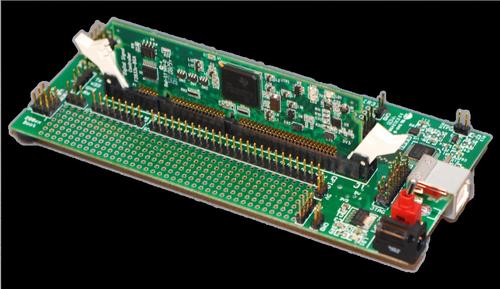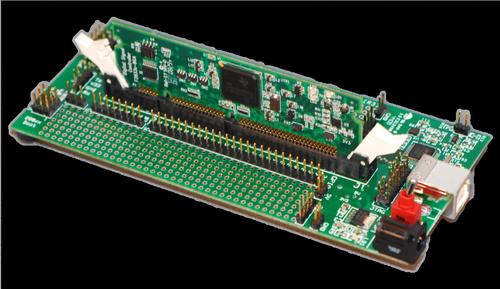MCUs Simplify Resolver-Based Motor Control Systems
October 25, 2012

Resolvers, or rotary-position sensors, provide a continuous output of sine and cosine signals that let control electronics determine a shaft's position. Resolvers attached to motors provide information about rotary speed and position for material cutters, printing presses, and similar equipment.
The resolver's sine and cosine signals require processing to convert them into digital values for calculation of position, revolutions per second, and so on. You can buy resolver-to-digital converters, but a fast microcontroller can do the job just as well. And the MCU can create the sine wave signal used to excite the resolver's input.

ICs in the new Delfino TMS320C2000 MCU family from Texas Instruments -- with several external components for signal conditioning -- can serve as precision synchro-to-digital converters. The MCUs also supply the hardware necessary to control motors. This application whitepaper by Ramesh Ramamoorthy, a C2000 MCU applications engineer, reviews the principles of resolver operations, describes needed signal conditioning steps, and provides a schematic diagram for external signal conditioning circuits. Those circuits need five op-amps and about 40 resistors and capacitors. TI said in a press release that programmers and engineers can get the free Delfino MCU software for the resolver applications from their local TI sales representative.
According to TI, a Delfino TMS320F28335 MCU will sample the resolver sine and cosine signals at 160 ksamples/sec, which means 16 samples per sine or cosine wave. After an initial offset compensation, the digital values pass to a control block, from which software provides angular values. The MCU also creates the excitation sine wave signal and updates it at the same sample rate. To enhance measurement accuracy, ADC sampling occurs at the peak of the sine and cosine signals received from the resolver.
Those interested in exploring the Delfino MCU capabilities and software tools can start with the free C2000 controlSUITE and Code Composer Studio integrated development environment (though there's a code limit on the free version).
An 'F28335 controlCARD (TMDSCNCD28335) costs $69 and gives you an MCU and other circuits on a 9cm x 2.5cm board that provides a standard 100-pin DIMM-type edge connector. The DM100 F28335 Experimenter's Kit (TMDSDOCK28335) costs $99 and supplies a baseboard with built-in USB-JTAG-emulation hardware (shown in the photo). TI also sells a variety of C2000 motor control kits that are compatible with Delfino microcontrollers.
Related posts:
About the Author(s)
You May Also Like
.jpg?width=300&auto=webp&quality=80&disable=upscale)


